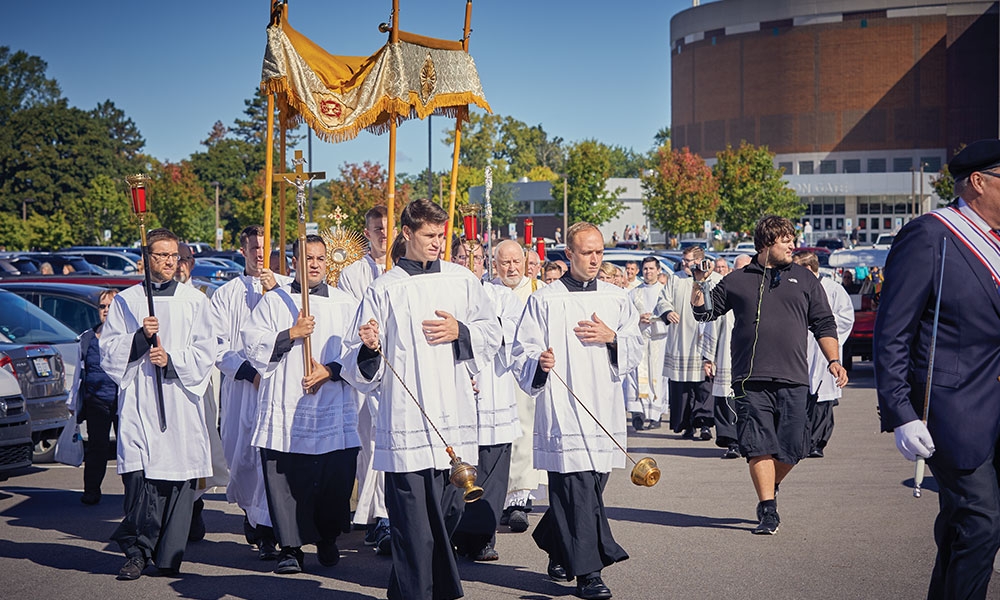
Bringing Jesus into the community
The evangelistic power of Corpus Christi processions
The evangelistic power of Corpus Christi processions
Catholics across the United States will celebrate the Solemnity of Corpus Christi on the first weekend of June. Many will make sacred journeys through the streets, carrying the Blessed Sacrament in a display of public adoration.
Catholics across the United States will celebrate the Solemnity of Corpus Christi on the first weekend of June. Many will make sacred journeys through the streets, carrying the Blessed Sacrament in a display of public adoration.
This year’s rituals take on added significance, however, as the Church moves from its parochial focus on the Eucharist to a renewed sense of mission in July and beyond.
“Bringing the real presence of Christ out into the community is a perfect exclamation point for us as we seek to open ourselves to the graces of the Eucharistic Revival,” says diocesan director of the Office of Worship Jeremy Priest. “Nourished by the Eucharist, we are called to become disciples who evangelize and bring God’s love to the streets in service to our neighbor. What better way to move into this phase of mission than by literally bringing the Body of Christ, the Word made flesh, to be adored in the public square?”
Originating in the 13th century, the Feast of the Most Holy Body and Blood of the Lord (Corpus Christi) was instituted by Pope Urban IV to honor the real presence of Christ in the Eucharist. Today, Priest says, it’s a powerful way to spread the good news of the God who became flesh and dwelt among us.
“Eucharistic processions can be powerful experiences of discovery,” he suggests. “They have an immense impact not just on those taking part but also on those observing the witness of the faithful for the first time. This tradition especially offers the curious a glimpse into something sacred as they observe the reverence and joy we exude around the Blessed Sacrament.”
This year, Bishop Earl Boyea has issued a call to action, urging parishes to conduct Eucharistic processions in their own communities. In areas where such processions are yet to be large events, something new can be started, either independently or in collaboration with neighboring parishes.
“The bishop wants to ensure all parishes can participate, even if their neighborhoods aren’t conducive to a procession,” he says. “We encourage smaller, rural communities to join with others in their groupings, so the experiences can help witness to God’s dwelling among us across the diocese.”
The Corpus Christi processions aim to build a sense of unity and shared devotion, to transcend barriers, and bring together individuals from all walks of life. In a world often divided by discord, the procession stands as a poignant reminder of our shared humanity and the universal call to communion with the One God.
